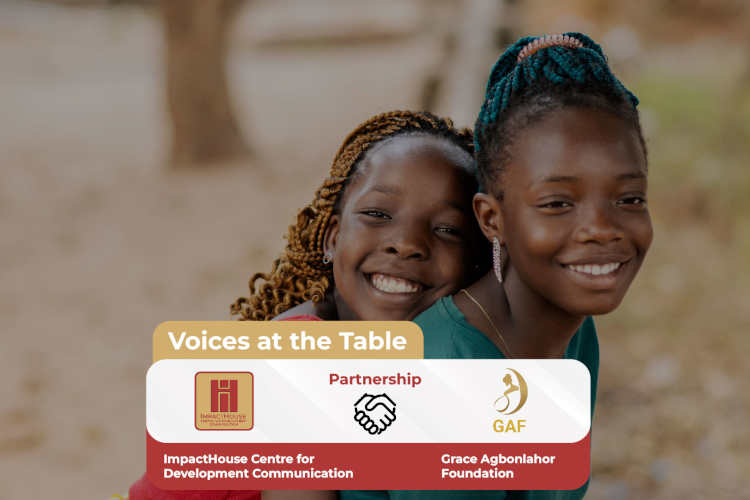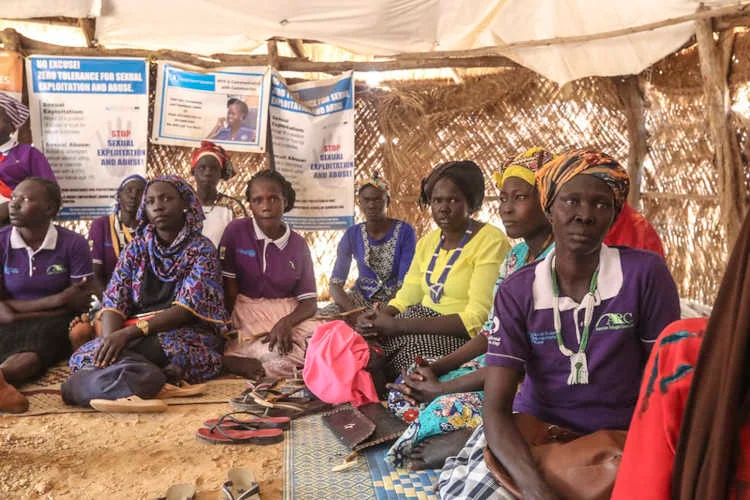RE: Amid low impacts, over 174,100 new NGOs established in 4yrs — Nigeria
This letter is a response to your front-page news article “Amid low impacts, over 174,100 new NGOs established in 4yrs — Nigeria published 24 September 2024, both online and in print.
Dear Guardian Newspaper,
On September 24th, you published a front-page article titled – Amid low impacts, over 174,100 new NGOs established in 4yrs — Nigeria. We the undersigned non-government organisations (also known as nonprofits) welcome the publication of this article which has generated debates on the state and impact of our sector.
Our interest is to ensure that when conversations around our sector rise to the surface of public discussions or debates, our perspectives are also heard.
We are grateful for the research that went into the publication, as we note that the article was informed by data from the Corporate Affairs Commission (CAC). To respond to the article, we would provide perspectives from the lens of thought leaders and nonprofit actors who see the issues differently based on our work and provide missing information.
For ease of response, we have provided our own headline and quoted (in italics) sections of the article that merits our response and the Guardian Newspapers introspection.
Significant impact
“…Amid low impacts” reads the article rider , but a careful review of the article does not provide evidence to support this claim. The nonprofit sector fought for and continues to sustain the democracy we all enjoy, providing services to communities across the country in the fields of health, education, advocacy on legacy laws such as freedom of information, digital rights, reform of electoral laws, campaigns and awareness on HIV/AIDs and polio, gender rights, protection of journalists from harassment and attacks, to name just a few.
In terms of economic impact, here is a sector that provides employment, and contributes to Nigeria’s tax income through P.A.Y.E, VAT and WHT., We also have a catalytic effect on the hospitality industry (hotels and airlines) based on conferences, workshops and other events the sector hosts.
Keeping in mind the role of the media to inform and educate, we would like to know what metrics the Guardian Newspaper has used in measuring the sector’s impact as low. We believe there must be a science to the Guardian Newspapers claims or is it just sensationalism sensationalization?
Sectors Growth, motivation, unlikely activities and use by politically exposed people to challenge the rule of law.
Powered by mission-driven people who are passionate about making a difference in their communities, Nigeria’s nonprofit sector has grown by over 1,000 per cent amid concerns about the motivation and unlikely activities of nonprofit firms being used by politically-exposed people to challenge the rule of law.
Fuelled by passion, optimism and the need for intervention on certain social issues, the necessity of not-for-profit agencies cannot be ignored, however, the sudden spike in their numbers remains a concern for stakeholders who state that the crowded field has increased the quest for funding and redefined purpose of many of these firms who are becoming tools in the hands of politicians for protests.
A “1,000 per cent” growth in the last 4 years in our opinion points to two things: One, “an improvement in the ease of doing business initiative of the federal government and freedom of association – ability of citizens to be able to form, operate and dissolve an association – enshrined in section 40 of the 1999 Nigerian Constitution (as amended) and is an important element of democracy. If in 25 years of the country’s democratic experience, data provided by Guardian Newspaper shows a 1,000 per cent increase, should we not be celebrating this important fundamental freedom?
This data could also mean an increase in citizens participation- another important element of democracy. We are sure the Attorney General of the Federation would be happy to use this data at the next Universal Periodic Review at the United Nations Human Rights Council to showcase the Government’s progress on freedom of association.
Two, the increase also signals the interest of citizens to support the government in solving the myriads of challenges facing our country in the last 4 years since it seems they are not seeing much progress. Recall that Goal 17 of the Sustainable Development Goals calls for a meaningful partnership between government, civil society and private sector for the global goals. It must be emphasised that all the activities of these organisations are traditional roles of government at the federal, state and local government level- meaning they are only helping the government.
Is Guardian Newspapers then saying that citizens can and should not support their government or that the failure of government is what led to the increase we are witnessing.
Compared with other mature democracies, the NGO per capita in Nigeria remains low, if the 191,278-figure number of organisations registering as incorporate trustees provided by Guardian Newspapers is anything to go by. For example, www.charityexcellence.co.uk puts the number of nonprofits (Charities) in the United Kingdom (England, Wales and Scotland) at 488, 619 for a population of 66.97 million people (2022 figures). The United States has more than 1.97 million nonprofits for a population of over 345 million people (2024 estimate). Nigeria currently has a population of over 230 million (2024 estimate).
Where then is the proliferation that the Guardian Newspaper is alluding to?
The Guardian Newspapers, its readers and public should note that associations, religious organisations (churches and mosques), foundations (including those set up by politicians and wives of governors or other political office holders), think thanks, traditional NGOs, clubs etc, all register as incorporated trustees. Hence the 191, 278 figures should be read with this in mind.
What did the Guardian Newspaper mean when it wrote: “…. unlikely activities of nonprofit firms being used by politically-exposed people to challenge the rule of law”.
According to the World Justice Project in its 2022 Rule of Law Index, Effective rule of law reduces corruption, combats poverty and disease, and protects people from injustices large and small. It is the foundation for communities of justice, opportunity, and peace—underpinning development, accountable government, and respect for fundamental rights. Traditionally, the rule of law has been viewed as the domain of lawyers and judges. However, everyday issues of safety, rights, justice, and governance affect us all; everyone is a stakeholder in the rule of law.
Therefore, how have nonprofits been used by politically exposed people to challenge rule of law, when all nonprofits are known for their fight against corruption, addressing poverty, hunger and disease, fighting injustice and even defending the media from harassment, threats and attacks.
The Guardian Newspaper owes the sector an answer.
A politically exposed person according to the Financial Action Task Force is:
A politically exposed person (PEP) is an individual who is or has been entrusted with a prominent function. Many PEPs hold positions that can be abused for the purpose of laundering illicit funds or other predicate offenses such as corruption or bribery. Because of the risks associated with PEPs, the FATF Recommendations require the application of additional AML/CFT measures to business relationships with PEPs. These requirements are preventive (not criminal) in nature and should not be interpreted as meaning that all PEPs are involved in criminal activity.
It is for this purpose that we have the Special Control Unit Against Money Laundering (SCUML) within the Economic and Financial Crimes Commission (EFCC) before being able to open a bank account and why we have a National Risk Assessment for the sector conducted by SCUML according to the law. SCUML and the Nigerian government are celebrated globally for their progressive work and reforms around nonprofit regulations – an important win for the Government’s war on money laundering and countering of terrorism financing laws.
It seems out of step if the Guardian is not seeing this as a positive progress.
We are concerned that the Guardian Newspaper in this article said: …. However, the sudden spike in their numbers remains a concern for stakeholders who state that the crowded field has increased the quest for funding and redefined the purpose of many of these firms who are becoming tools in the hands of politicians for protests.
Protests are a fundamental right with expressions ranging from the right to freedom of expression to the right to peaceful assembly and association.
Is the Guardian Newspaper now invalidating the right of citizens to protest? Or that every protest so far organised in the country is a result of nonprofits being used by politicians for protests? It is on record that while nonprofits have raised the issues and called the attention of governments to all of the concerns or demands made by both the #EndSARS and #EndBadGovernance protesters, the protests have been led by citizens.
We are worried that a platform that should be a source for news knowledge, insight and high-quality journalism will allow itself to be used to stifle citizens rights in what seems like a coordinated attack to weaken the very pillars of democracy that the media should be fighting for. Whose interests do articles like this serve?
Push Back on Regulations
To further confirm its narrative on proliferation, the Guardian Newspaper wrote about attempts by the National Assembly to enact laws to regulate the sector but was met with “stiff opposition”. While the sector is not averse to regulations, what the sector is saying is that regulations should be enabling and not stifling.
At present there are over 50 laws, policies, regulations and directives that regulates the nonprofit sector in Nigeria. Why do we need any more? The major laws are Company and Allied Matters Act 2020, Companies Income Tax Act, Finance Act, Economic and Financial Crimes Commission (Special Control Unit Against Money Laundering Supervision of Non-profit Organizations that are at Risk of Terrorism Financing Abuse) Regulations. Others include laws on pensions, health insurance, volunteering, charitable shipping among others.
Yes, according to the article we may have suspected the government, but over the years, the National Assembly and sector regulators such as the Corporate Affairs Commission, Federal Inland Revenue Service and Special Control Unit Against Money Laundering have worked hard to engage the sector on its concerns, and we are seeing some progress and law reforms.
Why Quote the “then action Registrar General”?
We are concerned that despite its research and obtaining figures from the Corporate Affairs Commission, the Guardian Newspapers has refused to quote the present Registrar General who now supervises the Commission and under whose tenure we have seen some progress. The Registrar General was appointed on October 16, 2023, making him sufficiently capable to provide perspectives on the number and growth in registrations.
It seems that quoting the acting Registrar General suits the narrative being promoted by the Guardian Newspaper.
NFPO Code of Governance Bill
It is concerning that the Guardian Newspaper did not reflect the work of the Financial Reporting Council (FRC) in supporting a co-created corporate governance code for the not-for-profit sector. A code that is under consultation with the sector. Following virtual consultations with different stakeholder groups, taxpayers’ money and resources was deployed by the federal government to further consult with nonprofits across the country in a move to ensure that all concerns are factored and used to shape final outcomes. This is yet another good practice coming from the government.
We wonder why the Guardian Newspapers research did not at any point reveal that the governance code, which is a principle and not a law, is in motion, and that it is geared towards encouraging an effective corporate governance among nonprofits. We must reiterate that good corporate governance is the sector’s DNA.
In conclusion it is worth noting that the Guardian Newspaper, an established media platform, chose to report with a single view and ignored journalistic best practice of speaking to all stakeholders. What is Guardian’s interest in this single-view reporting?
What do we expect from the Guardian Newspapers?
This is our right of reply, and we hope that it will receive the same coverage and front-page placement that the original article enjoyed.
To coordinate engagement with the sector, Edosa Oviawe of Global Rights and XX of Media Rights Agenda can be reached at edosao@globalrights.org and XX.
Sincerely,
BudgIT Foundation
EiE Nigeria
Global Rights
Nigeria Network of NGOs
SOS Children’s Villages Nigeria
Menitos Charity Foundation
ImpactHouse Centre for Development Communication
Women in Energy and Economic Sustainability Initiative
Holu Nikka Humanitarian Foundation
Grace Agbonlahor Foundation
Visionary Initiatives for Educational Revitalization and Advancement






